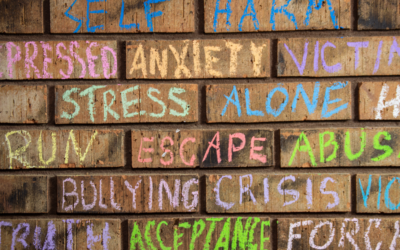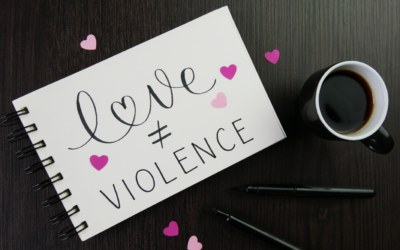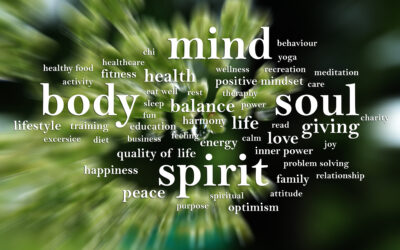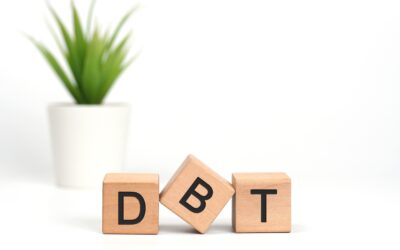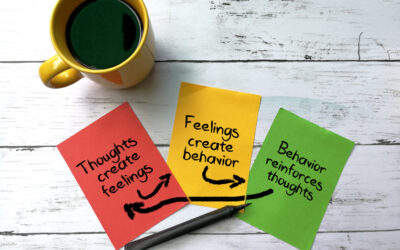Understanding Your Triggers: A Path to Better Mental Health
Have you ever felt overwhelmed by emotions in certain situations and wondered why? These intense feelings are often caused by emotional triggers—specific events or interactions that bring up strong reactions based on past experiences. Recognizing these triggers is an essential step in understanding yourself, improving your mental health, and growing emotionally. By knowing what sets off your emotional responses, you can face life’s challenges with more confidence and control.
What are Emotional Triggers?

Emotional triggers are events or situations that cause strong emotional responses, often connected to our past experiences. For example, if someone criticizes you, it might bring back memories of times when you felt judged or misunderstood, resulting in feelings of hurt or anger. These triggers can be very different for each person and might include specific comments, certain kinds of interactions, or even particular places. By understanding your emotional triggers, you can learn to manage your reactions better and handle tough situations with more ease.
Recognizing what sets off your emotional responses is the first step to dealing with them effectively. This awareness empowers you to prepare for them and respond in more positive and healthy ways, improving your overall emotional health. Everyone experiences emotional triggers, and it’s completely normal to have strong reactions. The key is to start noticing when and why these reactions happen.
Understanding your emotional triggers is about building a healthier relationship with yourself and others. By taking the time to learn about your triggers, you invest in your own well-being and pave the way for personal growth and stronger, more fulfilling relationships. Remember, this is a journey, and each step you take brings you closer to a better understanding of yourself.
Common Emotional Triggers:
Criticism
- Trigger: Receiving negative feedback or being criticized.
- Response: Feelings of defensiveness, shame, or anger, often tied to past experiences of judgment or rejection.
Rejection
- Trigger: Being excluded, ignored, or turned down.
- Response: Sadness, feelings of inadequacy, or fear of abandonment, often linked to past experiences of being left out.
Conflict
- Trigger: Arguments or disagreements, especially with loved ones.
- Response: Anxiety, frustration, or withdrawal, often stemming from a fear of confrontation or unresolved past conflicts.
Failure
- Trigger: Not meeting personal or external expectations.
- Response: Feelings of worthlessness, disappointment, or self-doubt, often tied to perfectionism or fear of judgment.
Loss
- Trigger: Experiencing the death of a loved one or the end of a relationship.
- Response: Grief, sadness, or feelings of emptiness, often connected to unresolved emotions from previous losses.
Loud Noises or Sudden Changes
- Trigger: Unexpected loud sounds or abrupt changes in routine.
- Response: Startle response, anxiety, or hypervigilance, often linked to past trauma or high-stress environments.
Feeling Ignored or Unheard
- Trigger: Being dismissed or overlooked in conversations or decisions.
- Response: Frustration, sadness, or feelings of insignificance, often tied to past experiences of neglect or invalidation.
Uncertainty or Lack of Control
- Trigger: Facing unpredictable situations or feeling powerless.
- Response: Anxiety, fear, or attempts to regain control, often linked to a need for stability or past experiences of chaos.
Exploring the Impact of Triggers

When a trigger sets off an emotional reaction, it can feel like a storm brewing inside you. These triggers can deeply influence your thoughts, emotions, and behaviors. Imagine you’re at a meeting, and someone dismisses your idea. Suddenly, you feel a rush of anger or hurt, and your mind races with negative thoughts. This is a common experience when dealing with emotional triggers.
Your thoughts can spiral, making you feel overwhelmed or anxious. You might start thinking, “Why does this always happen to me?” or “I’m never good enough.” These negative thoughts can cloud your judgment and make the situation feel worse than it is. Emotions like anger, sadness, or fear can quickly take over, and before you know it, you’re reacting in ways you might later regret—snapping at someone, shutting down, or even avoiding similar situations in the future.
For instance, if criticism is a trigger for you, a simple comment at work might make you feel defensive or unappreciated. These feelings could stem from past experiences where criticism felt like a personal attack. By understanding this, you can start to see the current situation for what it is—a moment that might remind you of the past but isn’t the same.
Triggers can also impact your relationships. If you react strongly to a partner’s words or actions, it might lead to misunderstandings or conflicts. Being aware of your triggers can help you communicate more effectively, expressing your feelings without escalating the situation.
Navigating Triggers Constructively

Practice Grounding Exercises
Grounding exercises help you stay calm by bringing your focus back to the present moment.
- What it is: Grounding involves techniques that shift your attention to your surroundings or physical sensations.
- How to practice it: Take a few deep breaths, notice the colors or objects around you, or feel the texture of something nearby (like holding a smooth stone or touching a soft fabric). For example, try identifying five things you can see, four you can touch, three you can hear, two you can smell, and one you can taste.
- Why it’s helpful: Grounding reduces the intensity of your emotional reactions by calming your mind and body. It’s especially useful when emotions feel overwhelming or out of control.
Reframe Negative Thoughts
Changing your perspective can transform how you react emotionally to situations.
- What it is: Reframing means looking at a situation differently to challenge negative thought patterns.
- How to practice it: If a comment makes you feel criticized, pause and remind yourself that feedback is often intended to help you grow, not hurt you. Ask yourself, “Is there another way to interpret this situation?”
- Why it’s helpful: Reframing reduces emotional distress by shifting your focus to constructive interpretations instead of jumping to worst-case scenarios.
Cultivate Self-Compassion
Treating yourself with kindness can help you navigate triggers more effectively.
- What it is: Self-compassion involves being understanding and non-judgmental toward yourself when faced with emotional struggles.
- How to practice it: When you feel triggered, remind yourself that it’s okay to have these feelings. Speak to yourself as you would to a close friend—acknowledge your emotions without criticism and encourage self-care.
- Why it’s helpful: Self-compassion builds emotional resilience by helping you approach your feelings with acceptance rather than resistance, making it easier to manage and move forward.
Use Effective Communication
Responding thoughtfully can strengthen your relationships and reduce emotional escalation.
- What it is: Effective communication involves expressing your feelings calmly and clearly rather than reacting impulsively.
- How to practice it: Pause to take a deep breath before responding. Use “I” statements, such as, “I felt hurt when you said that,” to convey your emotions constructively. This keeps the conversation focused on your perspective without assigning blame.
- Why it’s helpful: Thoughtful communication fosters understanding and minimizes conflict, making it easier to address emotional triggers in relationships.
Seek Long-Term Support
Taking proactive steps for ongoing emotional balance can make a lasting difference.
- What it is: Long-term approaches include therapy and mindfulness practices to develop deeper emotional awareness and coping skills.
- How to practice it: Work with a therapist to explore your triggers and learn new strategies. Try mindfulness practices, like meditation or yoga, to promote calmness and reduce reactivity over time.
- Why it’s helpful: These approaches provide tools for managing emotions and creating a strong foundation for resilience, helping you handle triggers more effectively in the future.
Set Healthy Boundaries
Protecting your emotional well-being starts with knowing and communicating your limits.
- What it is: Healthy boundaries involve clearly defining what you’re comfortable with and sharing those limits with others.
- How to practice it: If certain topics feel sensitive, let others know you’d prefer to avoid them. For example, say, “I’d rather not discuss this right now—it’s a bit overwhelming for me.”
- Why it’s helpful: Clear boundaries can prevent situations that might trigger strong emotional reactions, allowing you to protect your mental health while building mutual respect in relationships.
Encouraging Growth and Empowerment

Taking the time to understand your emotional triggers is more than just learning how to manage your feelings—it’s a crucial step toward personal growth and stronger relationships. By recognizing what sets off your emotional reactions, you gain a powerful tool for navigating life’s challenges with greater confidence and ease.
Every small step you take toward self-awareness and self-care can have a big impact on your overall well-being. Mindfulness practices, therapy, or even a daily moment to reflect on your emotions can help you connect with your inner needs. These actions empower you to respond to triggers in constructive ways, rather than falling into habits influenced by past pain or stress.
Think about the potential improvements in your relationships when you communicate your emotions clearly and handle conflicts calmly. Understanding your triggers allows you to express your needs and boundaries with confidence, building deeper and more meaningful connections with others. Importantly, it also gives you the ability to treat yourself with the same compassion and care you would offer a close friend during difficult times.
Embracing this journey isn’t just about managing emotions—it’s a step toward better mental health and a richer, more fulfilling life. Greater awareness of your emotional patterns can prepare you to face challenges and create stronger bonds with those around you. Each effort you make is an investment in your well-being and sets the foundation for lasting personal growth.
Every small step matters. Whether it’s practicing mindfulness, seeking support, or taking time to reflect, each moment brings you closer to understanding yourself and achieving emotional balance. Move forward with patience and self-compassion, knowing that you are on a journey toward greater empowerment and emotional health.


